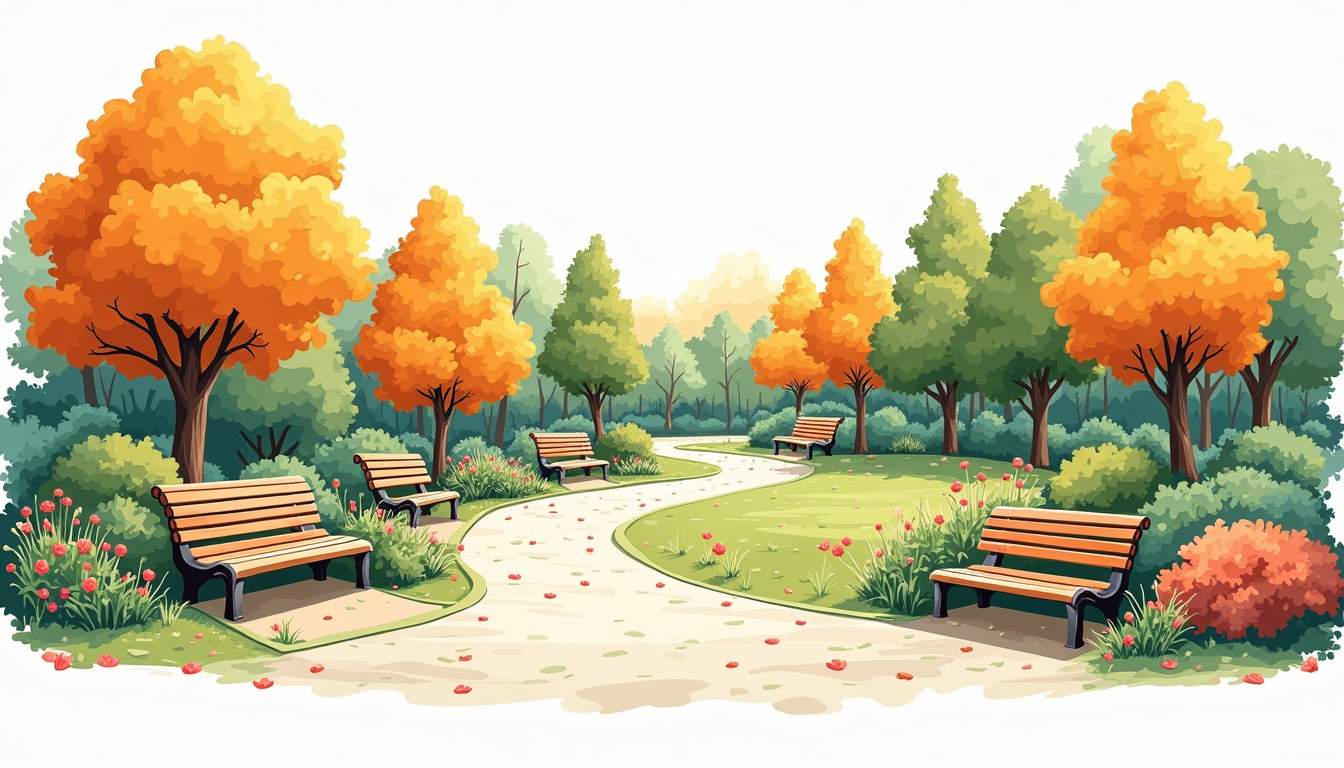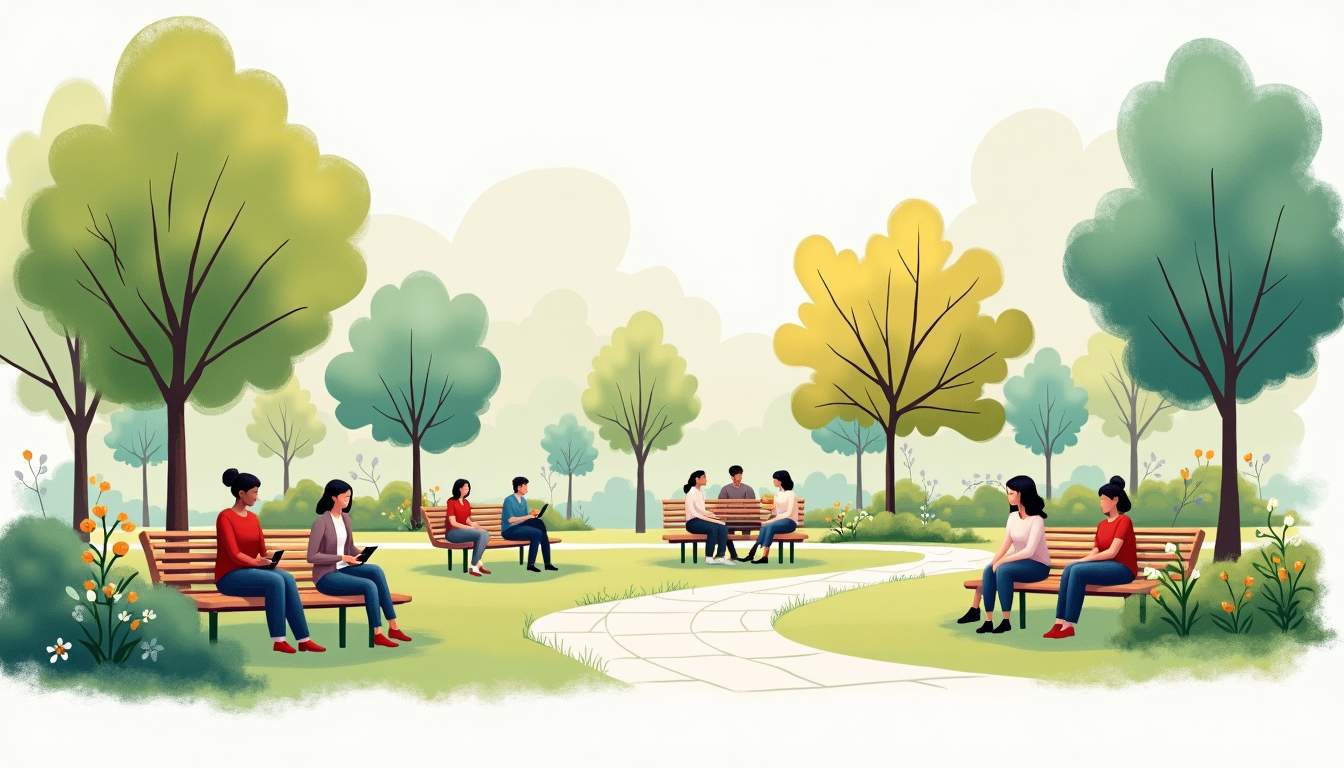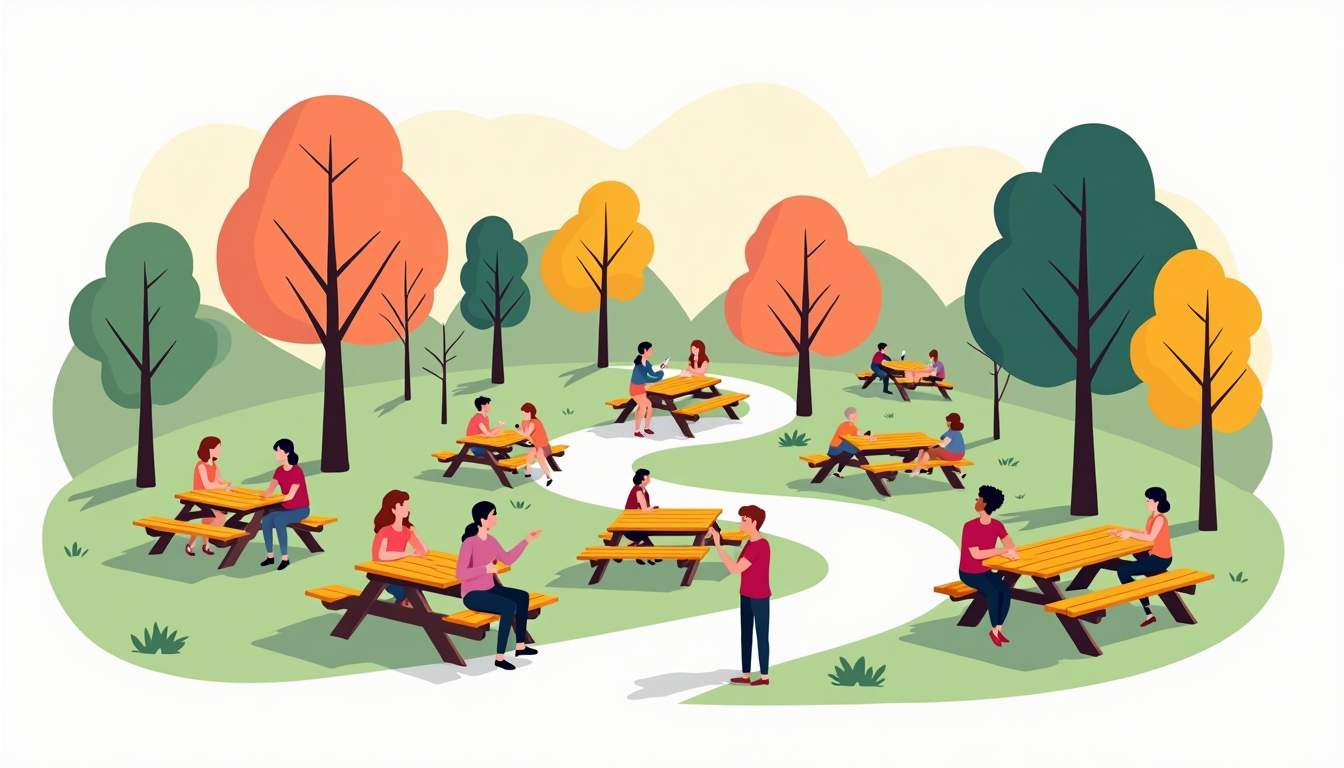
Moving to a new place often comes with a checklist: find a home, learn the neighborhood, set up utilities. The less obvious items are the human ones—finding people who fit into daily life, creating routines that lead to meaningful connections, and living in a place where friendships form without forced networking or awkward small talk. Choosing a community where friendships grow naturally is about more than proximity; it’s about how spaces are designed, how schedules align, and how local culture supports repeated, casual encounters that deepen into relationships.
Social science makes it clear that environment heavily influences who becomes part of a life. Proximity and frequency of contact are powerful predictors of friendship. When people cross paths regularly—at a corner café, on a running route, or in a shared common room—opportunities for conversation multiply. Those micro-moments, multiplied over weeks and months, are what transform acquaintances into friends.

Beyond mere frequency, the nature of shared activities matters. Collaborative, low-pressure environments encourage trust and shared identity. Volunteering at a neighborhood garden, participating in a community sports league, or attending local classes offers a natural backdrop for people with similar interests to connect, without the artificiality of meet-up events designed solely for networking.
Furthermore, shared challenges or goals within these environments can accelerate bonding. For example, neighbors working together to improve local green spaces or advocating for community improvements develop a collective sense of purpose that extends beyond casual interaction. This shared investment fosters a deeper emotional connection and a more resilient foundation for friendship.
Environmental factors also shape the diversity and inclusiveness of social networks. Areas with accessible community centers, multilingual signage, and inclusive programming encourage participation from diverse groups, enriching friendships with varied perspectives. Such environments not only increase the quantity of social ties but also enhance the quality by promoting empathy and cultural understanding.
Streets, parks, and public spaces shape social life. Walkable neighborhoods with pocket parks, benches, and small plazas invite lingering and spontaneous interactions. Mixed-use developments that combine shops, cafes, and residences create a rhythm where daily errands become opportunities to bump into neighbors. Buildings with common areas—courtyards, rooftop gardens, shared laundry rooms—make casual encounters more likely and more meaningful.
Design elements that prioritize human scale and sensory engagement further nurture social bonds. Features like narrow sidewalks, street trees, and vibrant storefronts encourage people to slow down and notice one another. In contrast to car-centric layouts, these design choices cultivate environments where eye contact, greetings, and informal conversations happen naturally, laying groundwork for new friendships.
Many friendships start with routine. Shared commuting patterns, school drop-offs, and recurring community events provide a predictable structure where small talk can evolve into deeper conversations. A place that encourages routines—through safe walking routes, reliable public transit, or recurring farmers’ markets—supports the repeated contact necessary for friendships to form.
Additionally, habitual rhythms create a sense of stability and familiarity that can be comforting amidst life’s changes. Returning regularly to familiar environments and seeing the same faces at similar times fosters belonging and reduces social anxiety, making it easier to initiate and nurture friendships. Over time, these patterns contribute to a rich fabric of community life embedded in everyday practices.
When evaluating neighborhoods or communities, look for signals that friendships are likely to grow organically. A vibrant local culture, visible informal gatherings, and opportunities for ongoing participation indicate fertile ground for relationships. This extends beyond urban cores—suburbs, small towns, and intentional communities all offer different kinds of social chemistry.
Simple observations can reveal a lot. Do people sit on stoops or in front yards? Do neighbors chat during evening walks? Are there bulletin boards, volunteer groups, and local clubs with steady turnouts? Businesses that host regular events—bookstore readings, music nights, or craft workshops—create focal points for people to gather and return to.
The right balance of scale matters. Very dense urban settings create many chance encounters but can be overwhelming and impersonal. Very sparse, car-dependent suburbs can make regular contact rare. Mid-density neighborhoods—where walking is practical and residents share several common destinations—often produce the best mix of familiarity without crowding.
Friendships rarely appear fully formed; they grow from small, consistent investments. Design daily life with moments that encourage interaction. This means choosing shops, routes, and activities that lead to repeat encounters and shared experiences.

“Third places” are neither home nor work but spaces where people gather naturally: cafes, community centers, libraries, or neighborhood bars. Frequenting a few reliable third places increases the chance of seeing the same faces, learning names, and forming the small bonds that lead to friendship. Regular presence matters more than dramatic outreach.
Classes, leagues, and volunteer commitments that meet regularly give relationships time to develop. Pick activities that align with personal interests so conversations and camaraderie arise naturally from shared goals. Long-term commitments, like a weekly choir or gardening collective, produce deeper ties than single-event meetups.
Inviting a neighbor for coffee or hosting a small potluck creates moments where acquaintances cross into friendship. Casual, low-pressure invitations—sharing baked goods, borrowing tools, or offering a ride—build a network of reciprocal, trust-based relationships. These gestures are more likely to be received positively in communities that already have a culture of neighborliness.
For friendships to be sustainable, communities should be welcoming and accessible to people from different backgrounds and life stages. Inclusion fosters a wider pool of potential connections and allows relationships to form across generational and cultural lines.

Neighborhoods that offer activities for children, teens, adults, and seniors create overlapping spheres where friendships can cross generational boundaries. Intergenerational programs—story hours that welcome grandparents, skill-sharing workshops, or community potlucks—encourage older residents to mentor and younger residents to learn, forming durable ties.
Cost can be a barrier to participation. Communities that provide free or low-cost programming—public concerts, library workshops, volunteer opportunities—allow broader participation. Accessibility also matters: spaces that consider mobility, language diversity, and varied schedules make it easier for more people to become regulars and form friendships.
Real-life examples demonstrate how ordinary settings produce strong relationships. A corner bakery where morning regulars save seats for each other can become an informal morning club. A community garden transforms seasonal volunteers into a support network. A local running route can link people across lives through mutual encouragement and shared goals.
Informal traditions act as social glue. Annual block parties, seasonal cleanups, and holiday decorating contests create recurring rituals that neighbors anticipate together. These rituals provide low-pressure ways to meet new people and reinforce bonds through shared celebration and effort.
Small, repeated acts—bringing in a package for a neighbor, lending a ladder, swapping recipes—accumulate into trust. Over time, these acts create a sense of belonging. Communities that normalize such behaviors through visible reciprocity make it easier for newcomers to engage in the same practices and be welcomed into social circles.
Finding a place where friendships grow naturally doesn’t happen by accident. It requires attention to certain features, a willingness to invest in routines, and sometimes a proactive role in shaping the local culture.
Spend time in a prospective neighborhood at different times of day. Note who uses public spaces, where people gather, and whether there are regular events. Speak to residents about local groups and traditions. Observing patterns reveals whether a place supports organic connection.
Building presence is more effective than big gestures. Choose one or two local places to visit weekly. Attend the same class or volunteer shift regularly. Over time, presence becomes familiarity, and familiarity opens doors to conversation and invitation.
Communities thrive when residents contribute. Join a neighborhood association, volunteer at the library, or help organize a clean-up. Contribution creates visibility and offers natural ways to collaborate with others, forming the basis for lasting friendships.
Once friendships take root, they require nurturing. Local friendships can be especially resilient because they are embedded in daily life and shared environments, but they still benefit from attention and mutual effort.
Local friendships flourish through serendipity—chance conversations and shared routines—but it helps to be intentional sometimes. Invite someone to a longer activity, suggest a new shared hobby, or coordinate plans around neighborhood events. These intentional moves deepen ties formed through casual contact.
Life stages shift: new jobs, children, and relocations alter availability. Communities that support friendships recognize this and offer flexible ways to stay connected: online neighbor groups, rotating playdates, or part-time volunteering. Persistence and adaptability allow local friendships to evolve rather than fade.
Where people live affects how they connect. Choosing a place where friendships grow naturally is an investment in everyday rituals and environments that make repeated contact possible and enjoyable. It’s about selecting neighborhoods with inviting public spaces, predictable routines, and inclusive programming—places that turn familiarity into friendship without pressure or contrivance.
Deliberate choices—spending time in third places, committing to regular activities, and contributing to local life—accelerate the process. Over time, those small investments yield a rich network of relationships that support well-being and belonging. Living where friendships grow naturally means living in a community that makes companionship easy, welcoming, and enduring.
At Tennessee National, we understand that true luxury is found not just in beautiful homes, but in vibrant communities where friendships grow naturally through shared experiences and inviting spaces. Surrounded by breathtaking landscapes and unmatched amenities, you'll find the perfect backdrop to build lasting relationships in a welcoming, resort-style setting. Ready to start your journey to a life full of connection and comfort? Schedule a Private Tour today and experience firsthand how Tennessee National can be your new home for friendship and belonging.